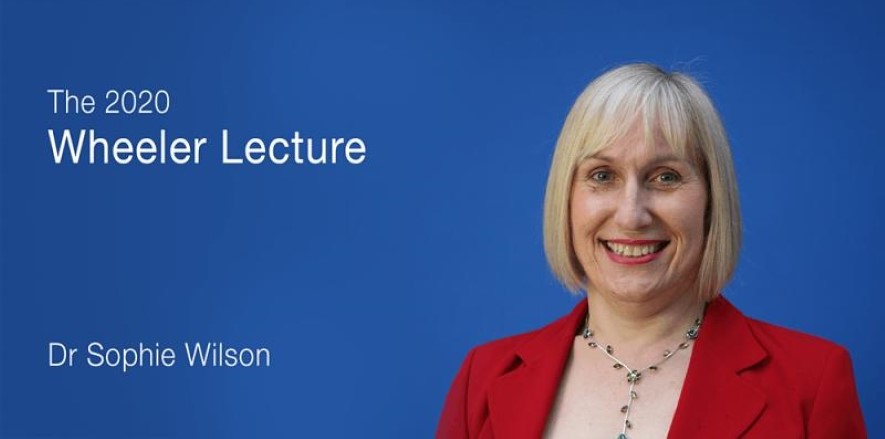
Submitted by Rachel Gardner on Wed, 20/05/2020 - 14:42
The annual Wheeler Lecture looked at the history of microprocessors, how we got to where we are now, and what constraints there are on the future. As predicted, there were laws, graphs and references to Star Wars...
The ninth annual Wheeler Lecture was given by Dr Sophie Wilson. It took place online on Wednesday 20 May - which was perhaps just as well, as we could not physically have fitted the 500 registered attendees into Lecture Theatre 1!
Sophie, an alumna of the department, co-designed, with her colleague Steve Furber, the BBC Microcomputer, BBC BASIC and the Acorn Assembler. They then went on to design the ARM processor, which originally powered Acorn's computers, and is now the core of virtually every mobile phone and tablet in the world – 75 billion ARM-powered chips have been sold to date.
Sophie is a Broadcom Fellow and Distinguished Engineer, a Fellow of the Royal Society, a Fellow of the Royal Academy of Engineering, a Fellow of the British Computer Society, a Fellow of the Women’s Engineering Society and an honorary Fellow of Selwyn College, Cambridge. She has an honorary doctorate of science from Cambridge University and a CBE.
The annual Wheeler Lectures are held in memory of Professor David Wheeler, one of the pioneers of Computer Science.
He worked on the original EDSAC computer and wrote the first computer program ever to be stored in a computer’s working memory. He pioneered the use of sub-routines and is particularly remembered for his work on data compression.
David started his PhD in the University of Cambridge's Computer Laboratory (then the Mathematical Laboratory) in the late 1940s, graduating in 1951. He then spent time at the University of Illinois before returning to the UK. He continued to work in the Computer Lab right up until his death, a decade after he had officially retired.
David was elected a Fellow of the Royal Society in 1981, one of the earliest computer scientists to be so honoured. In October 2003, he was made a Fellow of the Computer History Museum for his invention of the closed subroutine, his architectural contributions to the ILLIAC, the Cambridge Ring, and computer testing.
You can watch the lecture here.

